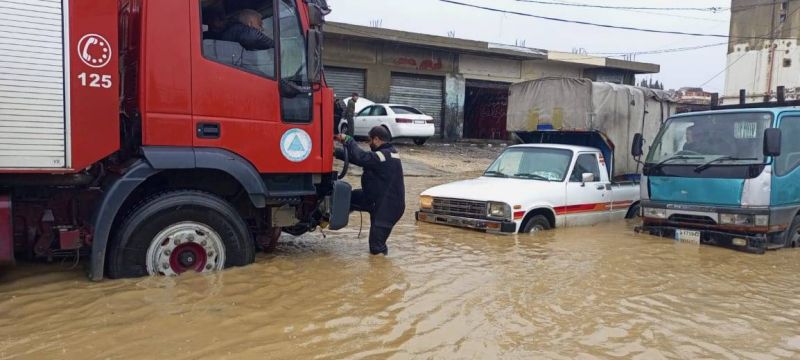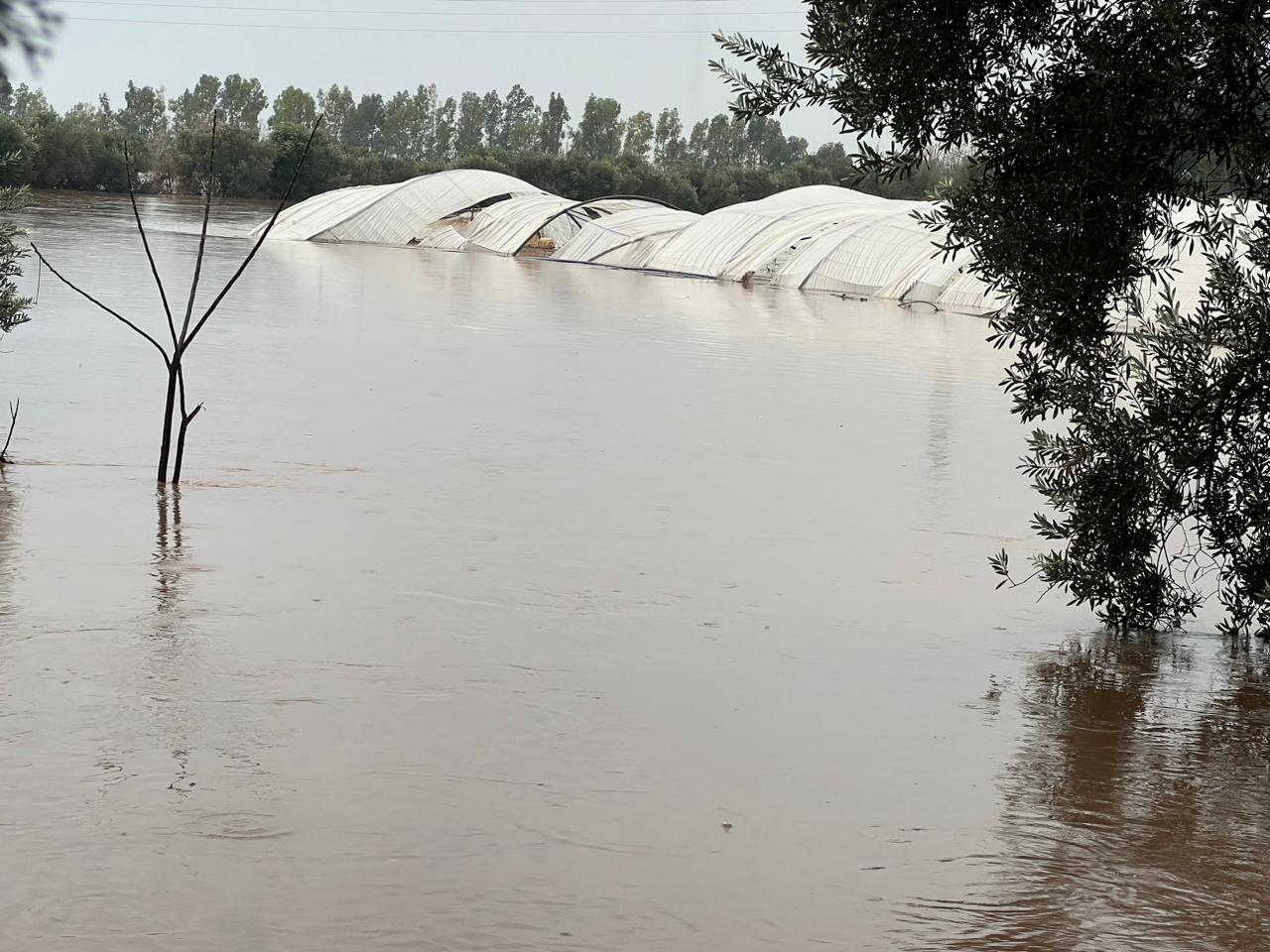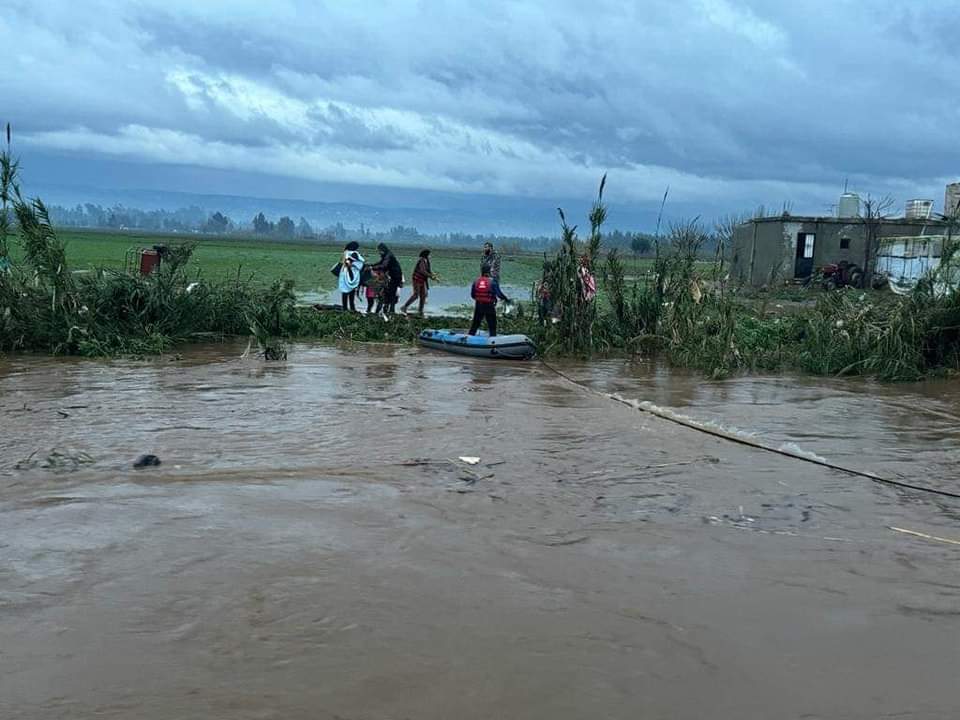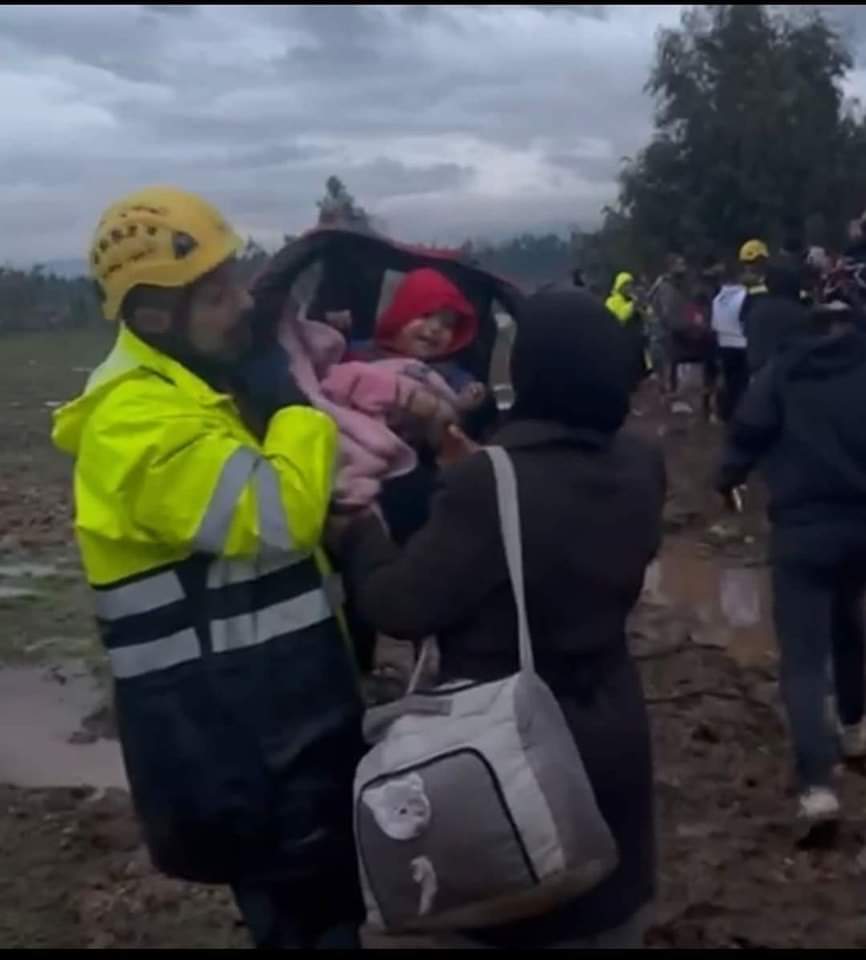
Civil Defense personnel rescuing drivers trapped by flooding in Akkar. (Credit: Michel Hallak)
BEIRUT — The storm drenching Lebanon this weekend has caused damage in several regions, and the bad weather is forecast to continue into tomorrow. As is the case every year in the country, roads have been transformed into rivers, one of many consequences of heavy rain, compounded by outdated and poorly-maintained infrastructure.
In Akkar and the north of Lebanon in general, the flooding made driving especially difficult, as reported by L'Orient Today's correspondent Michel Hallak. On Saturday morning, civil defense teams rescued several drivers trapped by water and mud on the major coastal road of Abdeh, at the southern entrance to Akkar. Waves and strong winds also prevented Akkar fishermen from taking their boats out on Saturday.
 Flooded greenhouses in Akkar, Jan. 13, 2024. (Credit: Michel Hallak)
Flooded greenhouses in Akkar, Jan. 13, 2024. (Credit: Michel Hallak)
The rainfall drowned some of the Qamouaa plains in the Akkar region and by early evening an estimated 160 to 200 milliliters of rain had fallen in the area.
Flooding in some localities in Akkar made it difficult for the Lebanese Army and Red Cross to bring food aid to the more than 340 Lebanese and Syrian families who were evacuated earlier in the day.
Members of the Lebanese Civil Defense also rescued seven members of the same family in Kneisseh, Akkar. They were trapped in their house, which was surrounded by water. The rescue team evacuated them by boat.
 Civil Defense rescue workers evacuate a family by boat after they were trapped in their home in Kneisseh, Akkar, on Jan. 13, 2024. (Credit: X/@CivilDefenseLB)
Civil Defense rescue workers evacuate a family by boat after they were trapped in their home in Kneisseh, Akkar, on Jan. 13, 2024. (Credit: X/@CivilDefenseLB)
Khaled Dib, head of the snow-clearing center in the Jord al-Qaytaa region, in the Akkar heights, told L'Orient Today that "all mountain roads in the region are usable," although he warned residents to take care when driving at night on the roads linking Qamouaa, Wadi Meshmesh and Hermel due to icy conditions. "The ministry of transport's snowplows are ready to intervene if necessary," he said.
 Civil Defense rescue workers evacuate a family by boat after they were trapped in their home in Kneisseh, Akkar, on Jan. 13, 2024. (Credit: X/@CivilDefenseLB)
Civil Defense rescue workers evacuate a family by boat after they were trapped in their home in Kneisseh, Akkar, on Jan. 13, 2024. (Credit: X/@CivilDefenseLB)
Several fields and properties in the region were also flooded, particularly in the Wadi Khaled area, according to our correspondent, as were numerous refugee camps, notably in Sheikh Zennad, Kneisseh and Semmaqiyeh. The refugees were evacuated by the Lebanese Red Cross and the army, to schools, mosques and other such buildings where they will stay temporarily.
Trapped in cars
The Civil Defense announced that it had to come to the aid of people trapped in their vehicles across several regions in Lebanon. Notably, its volunteers rescued six people trapped in their cars by snow in the heights of Sannine, Metn district.
South of Beirut, in Khaldeh, rescuers helped people trapped in their vehicles due to the sudden accumulation of water on the road, the organization announced in a post on its official X account.
Is sand the culprit?
Reacting to widely circulated images of flooded roads on social media, caretaker Minister of Public Works Ali Hamieh, published a video on his own X account showing an excavator digging into a sewer and extracting large quantities of yellow sand.
"Some people wonder why water collects on highways and not in drains. This video, taken this Saturday from a sewer in Dbayeh, shows huge quantities of construction sand being removed by a machine [that belongs to] the ministry," Hamieh wrote. According to him, this construction material comes from building sites in the region.